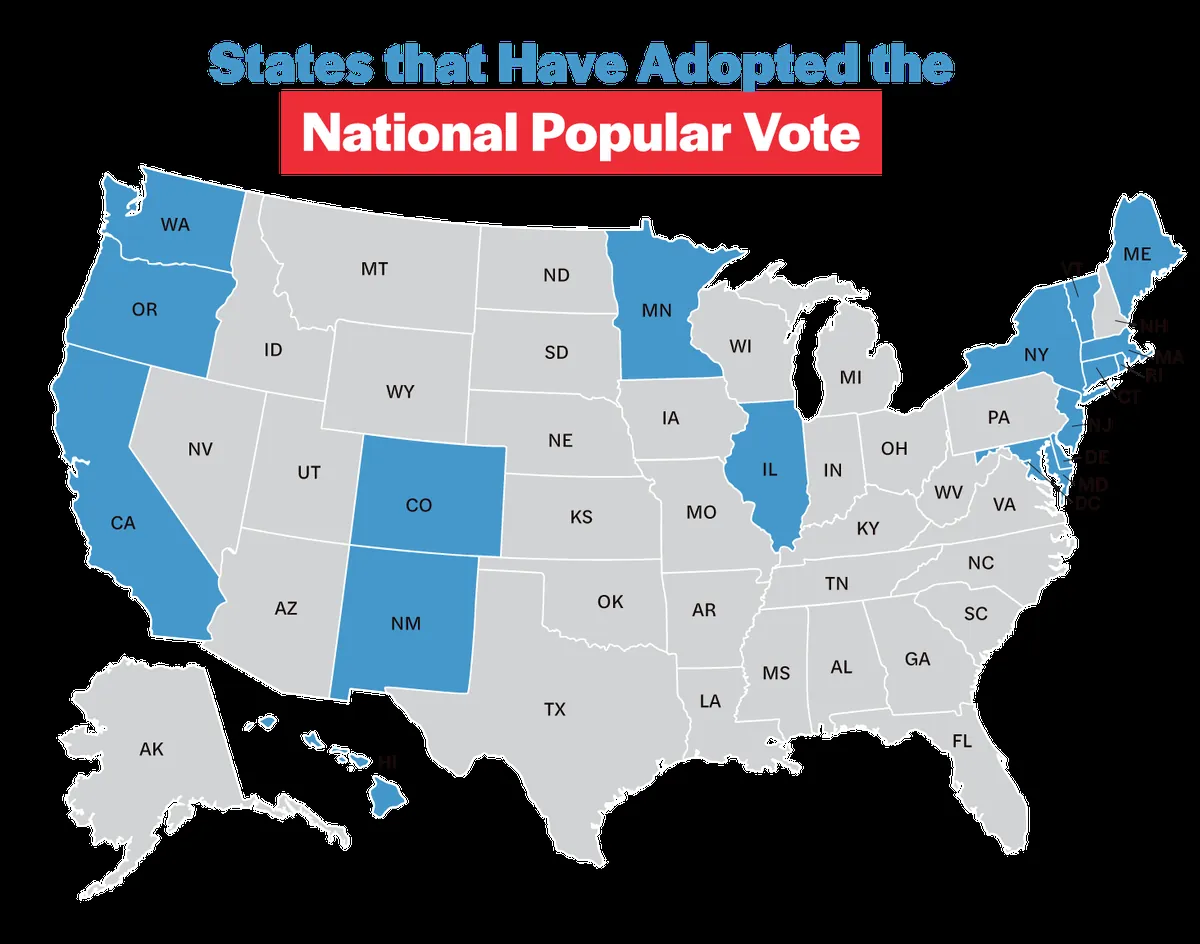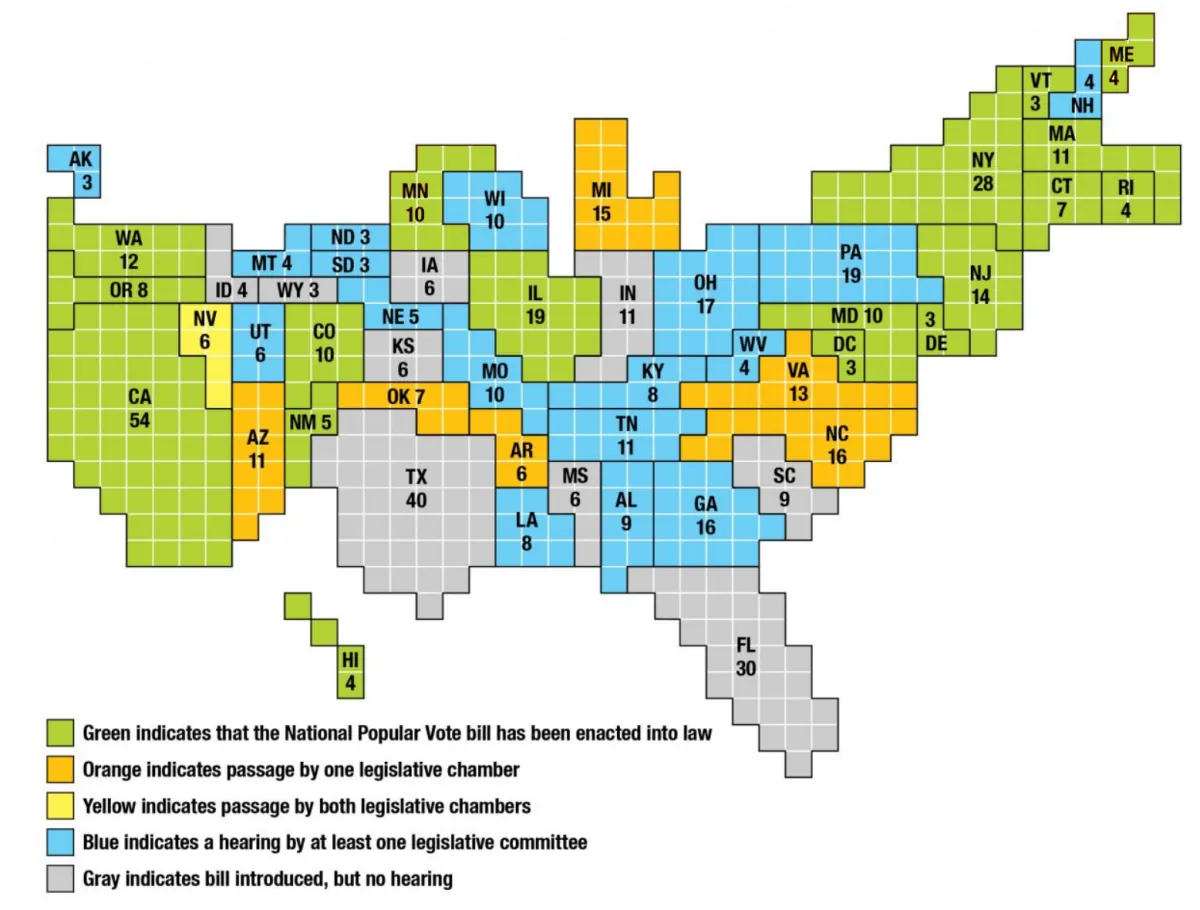Electoral College Reform Gains Momentum: A Shift Towards Popular Vote?
The National Popular Vote Interstate Compact gains traction as an alternative to the electoral college system. With 17 states on board, the initiative aims to ensure the popular vote winner becomes president.

The United States presidential election system, centered around the electoral college, has long been a subject of debate. This unique approach to selecting the nation's leader has, on multiple occasions, resulted in candidates winning the presidency despite losing the popular vote.
The electoral college, as defined by the National Archives and Records Administration (NARA), is a process rather than a physical location. In most states, the winner of the popular vote receives all of that state's electoral votes, with Maine and Nebraska being the exceptions, allocating their votes proportionally.
"Five times in U.S. history, and twice since 2000, popular vote losers won the White House."
This system has led to significant consequences. In 2000, George W. Bush secured the presidency despite losing the popular vote. His subsequent decision to invade Iraq resulted in substantial American and Iraqi casualties. Similarly, Donald Trump's 2016 victory, despite losing the popular vote, preceded the January 6, 2021, attack on the U.S. Capitol by his supporters.

In response to these issues, the National Popular Vote Interstate Compact has gained traction. This initiative aims to ensure that the candidate who wins the national popular vote becomes president, without requiring a constitutional amendment. Currently, 17 states and the District of Columbia, representing 209 electoral votes, have joined the compact.
Patrick Rosenstiel, a senior consultant for the National Popular Vote campaign, expresses optimism about implementing this system by 2028. Public support for reform is strong, with a 2023 Pew Research Center survey indicating that 65% of adults favor a system where the popular vote winner becomes president.
However, the electoral college system has racial and demographic implications. Wilfred U. Codrington III, a constitutional law professor, notes that the current system disproportionately affects Black voters, particularly in the South.
Proponents of the electoral college, such as the Heritage Foundation, argue that it preserves federalism and encourages broad coalitions. However, critics contend that it gives disproportionate weight to less populous states and leads to candidates focusing primarily on battleground states.
Despite strong public support for change, implementing a new system faces challenges. Aaron Scherb of Common Cause suggests that significant reform might require a scenario where a Republican presidential candidate loses the electoral college but wins the popular vote.
As the debate continues, the National Popular Vote Interstate Compact represents a potential path forward, aiming to align presidential election outcomes more closely with the will of the majority.


































